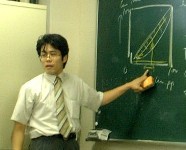The 4th WORKSHOP 18 October 2003 (Sat), GRIPS, Tokyo 14:00-16:00 |
|||
| Subject:
Aspects of Inequality in Vietnam: Measurement, Decomposition,
and Intertemporal Change 1993-1998
by Mr. Tadashi Kikuchi |
|||
|
The fourth workshop of JVEC was held on
In the first part, the author explained the method of study, especially
why he used the Theil index of inequality instead of the Gini Index: He
intended to explore the decomposability of the Theil index to examine the within
and between inequality for five categories: regions, rural and
urban, farm and non-farm, age of household heads, and education level.
Based on the results from the Vietnam Living Standards Surveys 1993 and
1998, he pointed to the increasing inequality in
Opinions and discussions followed. First and foremost, while the study
mainly described the situation of inequality, there was little explanation
or evidence to explain the causes. Income gaps may arise from many causes
including unequal incidence of globalization, rise of entrepreneurs,
unequal distribution of foreign money, ignored rural areas, corruption,
etc. Some inequalities were acceptable but others were not. To identify
possible causes, the author could have examined relevant factors such as
infrastructure, government policy, business environment, FDI, in addition
to human capital which he had noted. It was necessary to empirically test
the relation between inequality and these factors to arrive at policy
implications. There was a suggestion that the paper should start with a
hypothesis and then provide evidence for or against, which was more
conventional, than to just provide mainly numbers.
The author replied that in this study his purpose was to focus on the
description of the temporal changes in inequality in
Discussion then focused on possible specific reasons of changing
inequality in
|
|||
